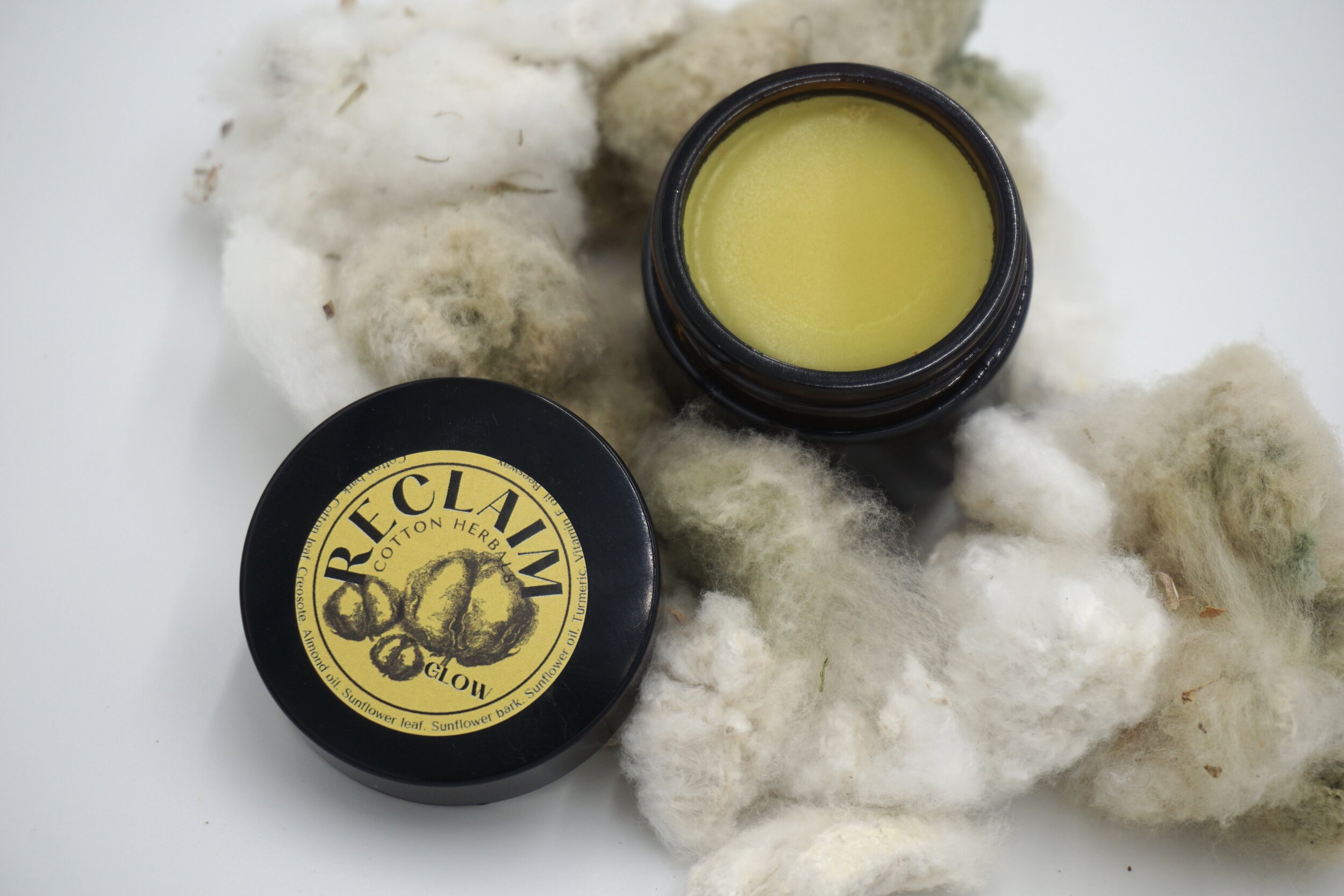Reclaiming Cotton
If you’ve been following me for a while, then you know that last summer I grew some cotton. This began as an experiment of connection. Growing up neither of my parents lived close to any of my other family members. So I didn’t get to spend a lot of time talking to my elders and learning about our family history. On my father’s side both of my grandparents have already passed. And those family members who are left don’t really have the stories and information I’m trying to gather. So I’ve taken it upon myself to find ways to fill in the gaps. One of the ways I’ve done this is trying to do genealogy work and also by doing my DNA test. The DNA test, was mostly to give me a general idea of where I come from, specifically where in Africa my ancestors come from. (On my mother’s side our family history is actually quite extensively documented. That’s called white privilege.) Upon doing my DNA test I learned, more or less, where my ancestors originated, and also which types of plantations they were enslaved on when they were forced into servitude here in the US. (Ancestry likes to tell you where your enslaved ancestors were most likely enslaved and what they were forced to cultivate. For my ancestors it was most likely cotton.)
Like many Black Americans when you say the word cotton, I had a visceral negative reaction. Images of Black bodies laboring to pick cotton. Babies and children forced to be in the sweltering heat while their parents, and some of the children themselves, languished in the in the sun. So last summer, I found cotton seeds at my local library. I checked them out and decided to see if I could grow some cotton. I figured it would be a way to get an idea of what my ancestor’s lives were like. While, of course, understanding that I was CHOOSING to grow and harvest my cotton. Understanding that I had a choice in how much I grew, how often I tended to it, how often I harvested, how I ultimately use it. But I figured I could see how difficult it was for even those short moments that I chose to engage with the plant.
As many of you know, I grow at a community garden. One day while we were tending to our plot our plot neighbor, who is from Liberia originally, asked if he could have some of the leaves when I was done. He then explained how back home they used it to relieve headaches. He explained that they would crush the leaves and then inhale the vapor/ smell. I. WAS. SHOCKED. This sent me down a wormhole of investigation. I’m a big advocate for finding ways to honor a plant by using the entire plant, if you’ve taken the time to grow a plant especially. Turns out that cotton has a whole host of medicinal applications. The entire plant has a purpose, outside of the actual fruit of the plant. MANY of which are directly related to reproductive health.
To list a few uses, cotton can be used as:
an emmenagogue and can aide in battling dysmenorrhea
an aphrodisiac
a galactagogue
an anti fertilty aid (*Fun note, this is one of the ways many of our ancestors prevented having unwanted pregnancies as a result of rape.)
a labor aid
wound healer
a treatment for bronchial asthma
dermatological care
anti-oxidizing
anti- ucler
gout treatment
an aid to alleviate depression
headache reliever
anti- poisonous remedy against scorpion and poisonous insect bites
treatment for gastrointestinal disease
malaria treatment
and more
Because of that, I’ve felt compelled to continue to grow and get to know this wonderful plant, and that is how RECLAIM Cotton Herbals was born. RECLAIM is my way of reclaiming cotton and honoring my ancestors.
People forget that Africans were enslaved and brought here, because they already knew how to cultivate certain things (cotton, indigo, tobacco, rice, etc). Which means we ALREADY had a relationship with the plant. Which means that it’s part of our heritage, BEYOND pain and oppression. And I found that as I was growing and harvesting cotton, that the entire process is calming and grounding. I’ve felt more connected to my roots. And am truly finding my purpose. I’m excited to continue to grow on this journey. I’m excited to expand my knowledge beyond the whitewashed narratives we’ve been fed. And I’m excited to heal myself and others through this process.

